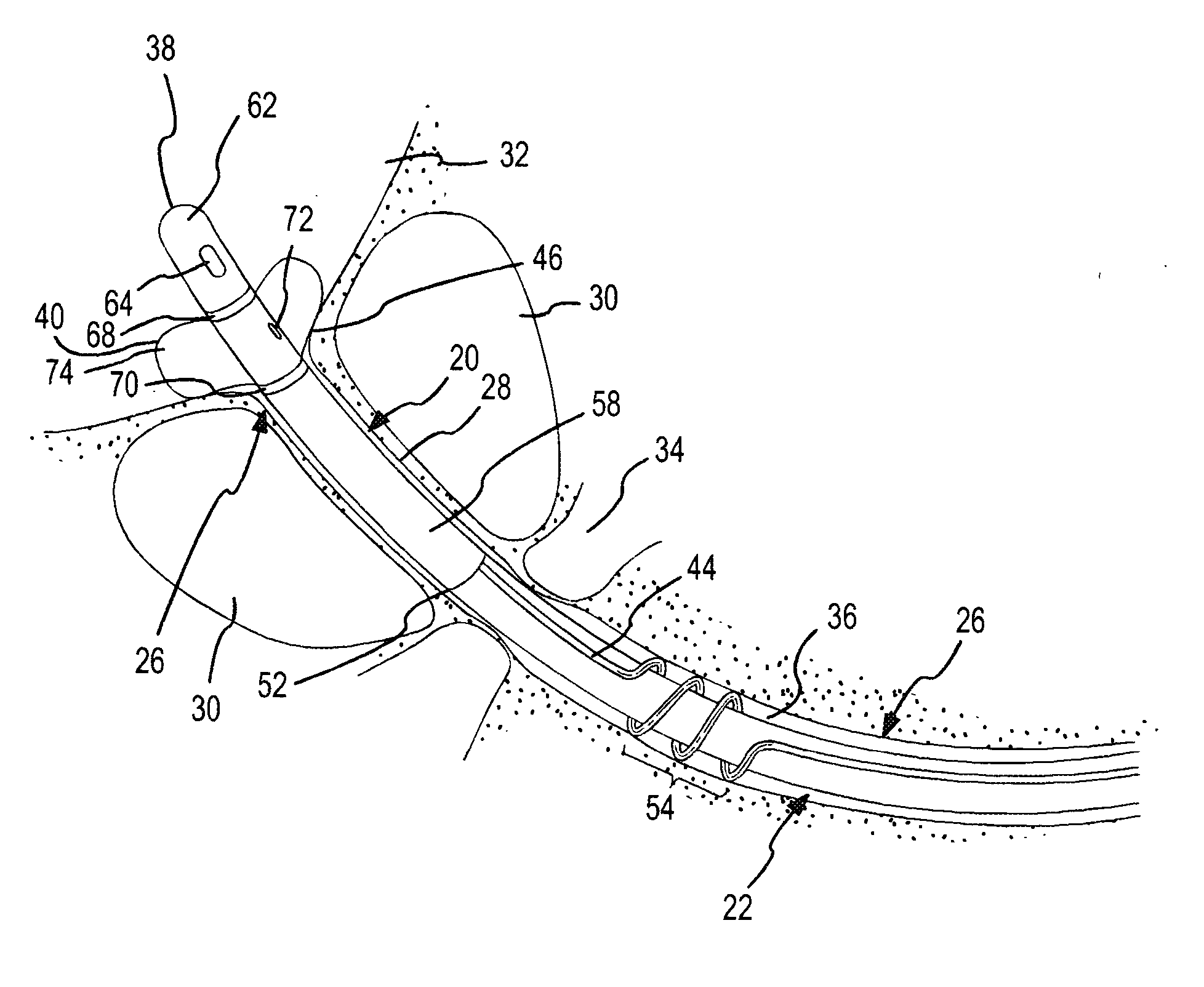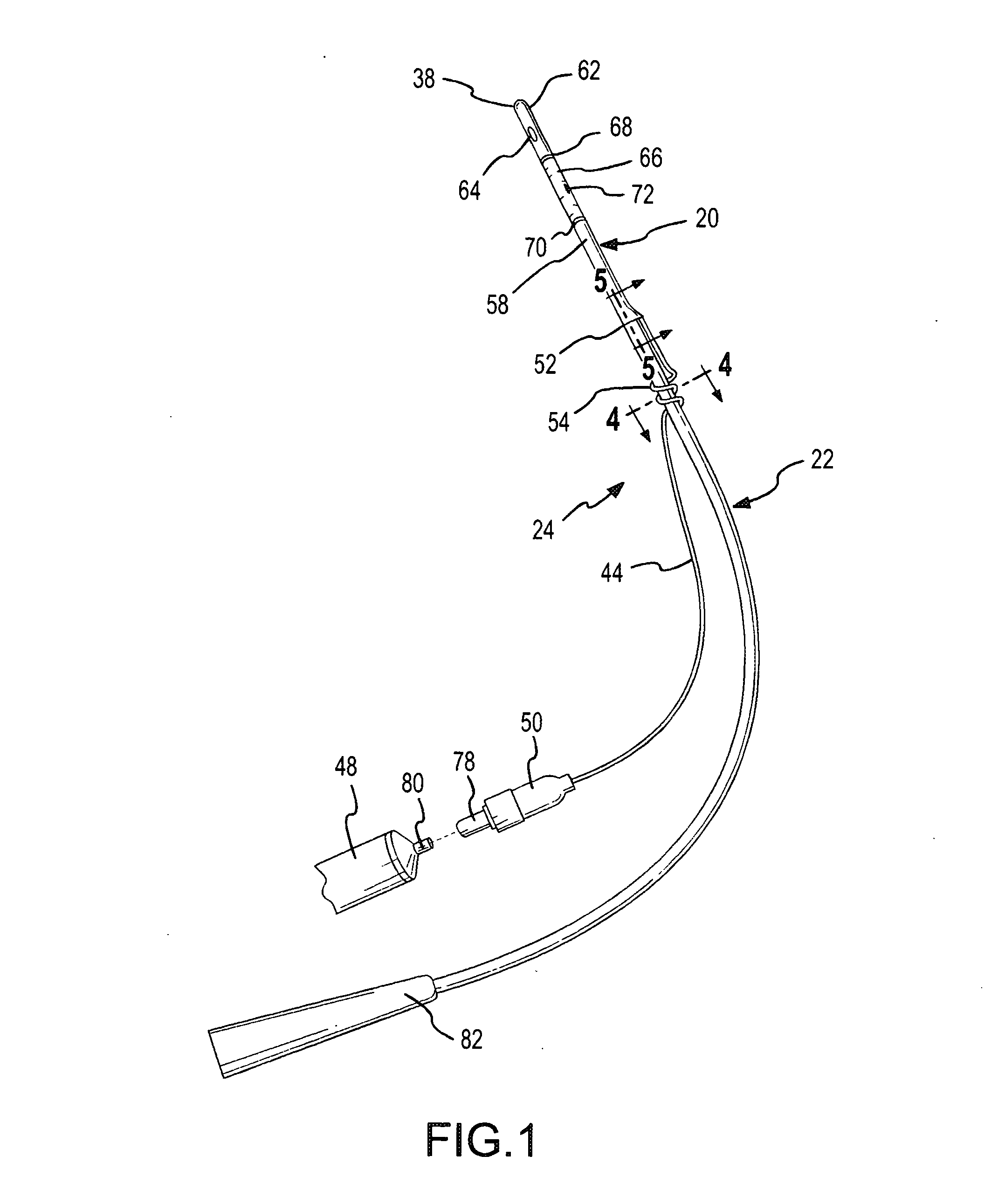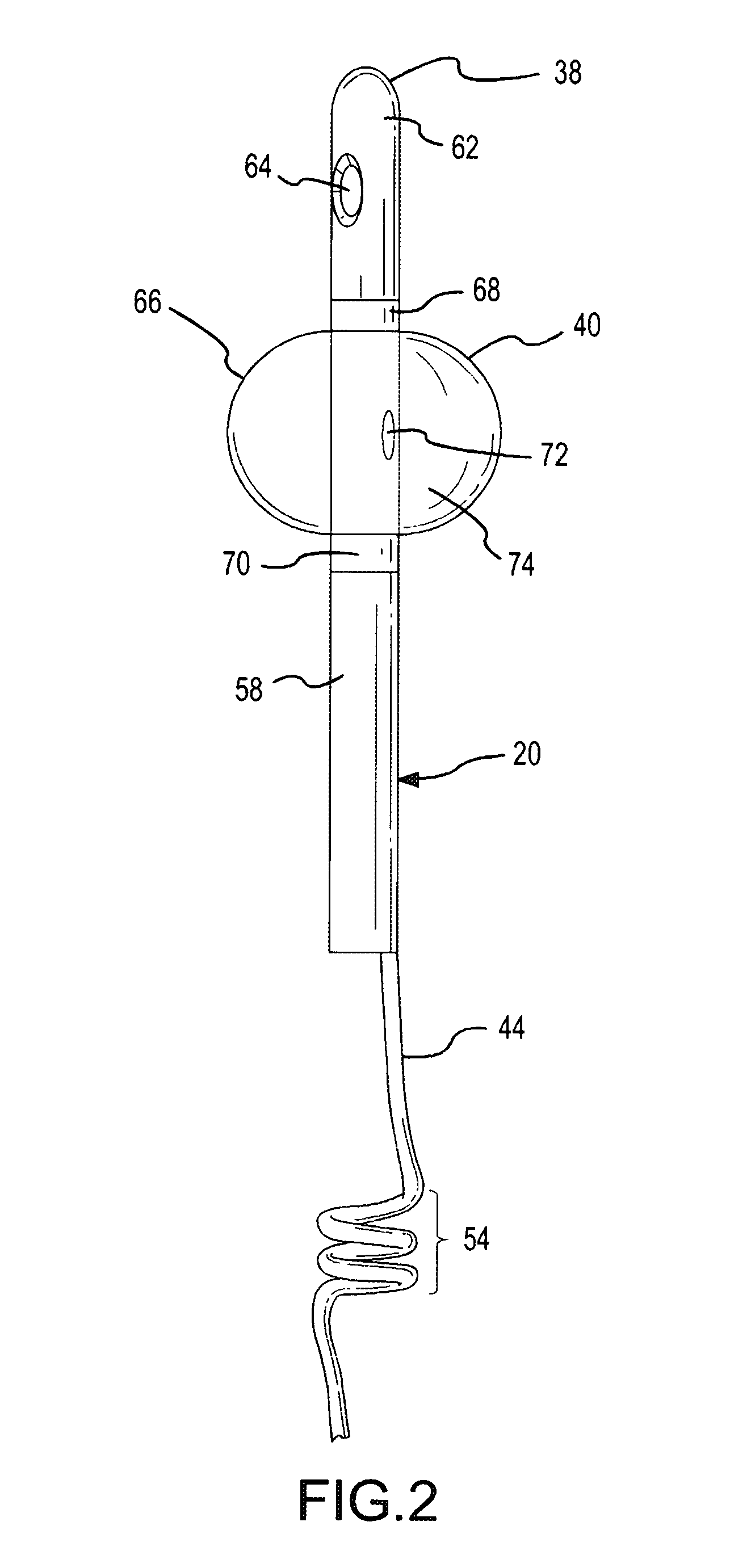Urinary catheter and method with increased resistance to obstructions
a technology of urinary catheter and obstruction, which is applied in the field of urinary catheter, can solve the problems of troublesome daily symptoms and effects of urinary diseases, difficult control and discharge of urine, and considerable difficulties in urine discharge, so as to reduce the risk of infection and irritation, promote the healing of the prostate gland, and maintain the ability of urine drainage in the passageway
- Summary
- Abstract
- Description
- Claims
- Application Information
AI Technical Summary
Benefits of technology
Problems solved by technology
Method used
Image
Examples
Embodiment Construction
[0036] A partial-length indwelling catheter 20 which incorporates the present invention is shown in FIG. 1, but the present invention is also applicable to full-length catheters (not shown). The indwelling catheter 20 is connected to an insertion tool 22, to form a catheter-tool assembly 24, which allows the catheter 20 to be inserted into an urinary tract 26 of a human being, as shown in FIG. 6. Once inserted, the insertion tool 22 is disconnected or separated from the indwelling catheter 20 to leave the catheter 20 dwelling or remaining within a prostatic urethra 28 within a prostate gland 30, as shown in FIG. 9. In its indwelling use position shown in FIGS. 8 and 9, the catheter 20 drains urine from a bladder 32 through the prostatic urethra 28 within the prostate gland 30 to a position slightly upstream of an external urinary sphincter muscle 34. When the external urinary sphincter muscle 34 dilates, the urine drains through an orifice of the the external urinary sphincter muscl...
PUM
 Login to View More
Login to View More Abstract
Description
Claims
Application Information
 Login to View More
Login to View More - R&D
- Intellectual Property
- Life Sciences
- Materials
- Tech Scout
- Unparalleled Data Quality
- Higher Quality Content
- 60% Fewer Hallucinations
Browse by: Latest US Patents, China's latest patents, Technical Efficacy Thesaurus, Application Domain, Technology Topic, Popular Technical Reports.
© 2025 PatSnap. All rights reserved.Legal|Privacy policy|Modern Slavery Act Transparency Statement|Sitemap|About US| Contact US: help@patsnap.com



